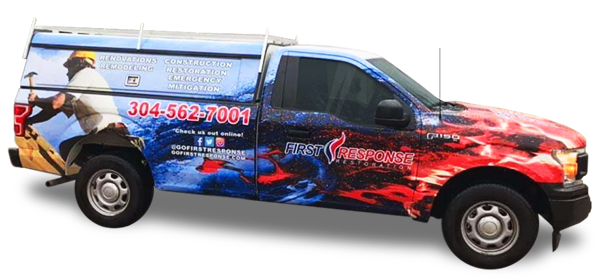As a homeowner, keeping your living space and loved ones safe should be your top priority. One of the most significant threats to your home’s safety is a fire. Fires can be devastating and cause significant damage to your property and can even be life-threatening. Fortunately, by implementing essential fire damage prevention tips, you can reduce the risk of fires and maximize safety in your living space.
From understanding common causes of fires to installing smoke alarms and fire extinguishers, there are many steps you can take to prevent fires from happening in your home. In this section, we will discuss some of the most important fire damage prevention tips, so you can keep your family and property safe.
Key Takeaways:
- Implementing fire damage prevention tips is crucial for ensuring the safety of your home and loved ones.
- Understanding common causes of fires is the first step in preventing them from happening in your home.
- Installing smoke alarms and fire extinguishers is essential for fire safety in your home.
- A well-defined fire safety plan can be a lifesaver in the event of a fire emergency.
- Practicing electrical safety and proper storage and handling of flammable materials can significantly reduce the risk of fires in your home.
Understand Common Causes of Fires
Before we dive into the essential fire damage prevention tips, it’s crucial to understand the most common causes of fires. By gaining knowledge about what typically triggers fires, you can take proactive measures to prevent them from happening in your home.
| Cause of Fire | Percentage of Total Fires |
|---|---|
| Cooking equipment | 49% |
| Heating equipment | 12% |
| Smoking materials | 5% |
| Electrical malfunction | 13% |
| Intentional | 8% |
| Unintentional | 17% |
As you can see, cooking equipment is the leading cause of fires in homes. This is often due to unattended cooking, cooking with flammable materials, or forgetting to turn off the stove or oven.
Heating equipment, such as furnaces and space heaters, is another common culprit. These fires can be caused by a lack of maintenance, leaving objects too close to the heating source, or faulty equipment.
Smoking materials, electrical malfunction, and intentional fires also pose significant risks. By understanding these common causes, you can take proactive steps to prevent fires from occurring in your home.
Install Smoke Alarms and Fire Extinguishers
Installing smoke alarms and fire extinguishers is a critical step in fire damage prevention. Smoke alarms can detect smoke and alert you to a potential fire, giving you valuable time to evacuate. It is essential to have working smoke alarms on every level of your home, including inside and outside of bedrooms.
When it comes to fire extinguishers, it’s crucial to choose the right type for the fire you may encounter. There are five different classes of fire extinguishers, and each is designed to extinguish specific types of fires:
| Class | Type of Fire | Extinguishing Agent |
|---|---|---|
| Class A | Ordinary Combustibles | Water, foam, or dry chemical |
| Class B | Liquids and Gases | Dry chemical or carbon dioxide |
| Class C | Electrical Fires | Carbon dioxide or dry chemical |
| Class D | Combustible Metals | Dry powder extinguishing agents specifically designed for the metal in question |
| Class K | Kitchen Fires involving Cooking Oils and Fats | Wet Chemical Agents |
It is recommended to have at least one fire extinguisher on each level of your home. Keep them in accessible areas, and make sure everyone in your household knows how to use them properly. Check the pressure gauge on your fire extinguishers regularly to ensure they are charged and ready to use in an emergency.
Create a Fire Safety Plan
Having a fire safety plan is critical for the safety of everyone in your household. A fire safety plan outlines the necessary steps to take in case of a fire and ensures that everyone knows what to do to get out of the house safely. Follow these steps to create your fire safety plan:
- Draw a floor plan of your home and mark all possible escape routes.
- Make sure that all windows and doors can be opened easily.
- Designate a meeting place outside your home where everyone can gather safely.
- Ensure that every member of your household knows the emergency phone number and the address of your home.
- Practice your fire safety plan with everyone in your household at least twice a year.
Remember, in case of a fire, every second counts. Having a well-defined fire safety plan can make all the difference in ensuring the safety of your loved ones.
Practice Electrical Safety
Electrical equipment and appliances are an essential part of modern life, but they can be a fire hazard if not used properly. By practicing electrical safety, you can reduce the risk of electrical fires at home.
Here are some essential tips to keep in mind:
- Inspect your electrical appliances regularly: Check for frayed cords, loose connections, and other signs of damage that could cause a fire hazard.
- Use appliances according to manufacturer instructions: Always follow the instructions and safety guidelines provided by the manufacturer when using any electrical appliance.
- Unplug appliances when not in use: Unplug appliances when they are not in use to reduce the risk of electrical fires.
- Don’t overload electrical outlets: Overloading electrical outlets can cause a fire. Use power strips with surge protectors to expand the number of devices that can be plugged into a single outlet.
- Install Ground Fault Circuit Interrupter (GFCI) outlets: GFCI outlets protect against electrical shock and are especially important in areas where water is present, such as bathrooms and kitchens.
If you notice any signs of electrical problems, such as discolored outlets or a burning smell, turn off the power to the affected area and contact a professional electrician immediately.
Properly Store and Handle Flammable Materials
Proper storage and handling of flammable materials is crucial in preventing fire accidents in your home. The following are some tips to help you safely store and handle flammable materials:
| Flammable Material | Safe Storage Tips | Safe Handling Tips |
|---|---|---|
| Gasoline | Store in a well-ventilated area away from heat sources, sparks, and flames. Keep in approved containers with tight-fitting lids. | Use gasoline outdoors only, and never near a heat source or spark. Do not smoke while handling gasoline. |
| Cleaning Products | Store in a cool, dry place away from heat and sunlight. Keep away from children and pets. | Follow the manufacturer’s instructions carefully. Wear gloves and eye protection when using chemical cleaners. |
| Chemicals | Store in a locked area away from heat and flames. Keep away from children and pets. | Follow the manufacturer’s instructions carefully. Wear gloves and eye protection when handling chemicals. |
Remember to always keep flammable materials away from heat sources, sparks, and flames. If you have unused fuels or chemicals, dispose of them safely by taking them to a hazardous waste collection facility.
By properly storing and handling flammable materials, you can significantly reduce the risk of fire accidents in your home. Stay safe and take the necessary precautions to protect yourself and your loved ones.
Maintain Heating and Cooking Equipment
Heating and cooking equipment are essential for daily life, but they can also be potential fire hazards. To minimize the risk of fire damage, it’s crucial to properly maintain your heating and cooking appliances. Here are some essential tips to follow:
| Equipment | Maintenance Tips |
|---|---|
| Heating furnace | Have your furnace inspected and cleaned annually by a professional. Replace the air filter regularly. |
| Chimney | Have your chimney inspected and cleaned at least once a year by a professional. Ensure the flue is open before lighting a fire. |
| Stove | Clean your stove regularly to prevent grease buildup. Check for gas leaks periodically if you have a gas stove. |
| Microwave | Do not use your microwave if it has a damaged door or turntable. Clean it regularly to prevent food buildup. |
By following these maintenance tips, you can significantly reduce the risk of fire accidents. Remember to always use heating and cooking equipment properly and never leave them unattended while in use.
Now that you understand the importance of maintaining heating and cooking equipment, you can take proactive steps to ensure the safety of your home and loved ones.
Conclusion
In conclusion, implementing these fire damage prevention tips is crucial for ensuring the safety of your home and loved ones. By understanding the common causes of fires, you can take proactive measures to prevent them from happening. Installing smoke alarms and fire extinguishers, creating a fire safety plan, practicing electrical safety, and properly storing and maintaining equipment are important steps towards reducing the risk of fire damage.
Remember, prevention is always better than cure. It is essential to stay proactive and make fire safety a top priority in your home. By implementing these tips, you can significantly reduce the risk of fire damage and ensure the safety of your loved ones.
FAQ
What are some essential fire damage prevention tips for safety?
Implementing the following tips can help minimize the risk of fire and maximize safety in your living space:
1. Understand common causes of fires.
2. Install smoke alarms and fire extinguishers.
3. Create a fire safety plan.
4. Practice electrical safety.
5. Properly store and handle flammable materials.
6. Maintain heating and cooking equipment.
What are the common causes of fires?
Common causes of fires include electrical malfunctions, cooking accidents, heating equipment failures, smoking materials, candles, and arson.
How do I choose the right smoke alarms and fire extinguishers?
When choosing smoke alarms, opt for those with a sealed-in, 10-year lithium battery, and ensure they are installed on every level of your home and near sleeping areas. For fire extinguishers, consider the type of fire they are designed to extinguish (ABC, BC, or A) and ensure they are easily accessible in key areas of your home.
How do I create a fire safety plan?
To create a comprehensive fire safety plan, you should:
– Identify multiple escape routes from each room.
– Designate a meeting point outside your home.
– Practice regular fire drills with all household members.
– Keep emergency contact numbers readily available.
What should I know about electrical safety?
Practice electrical safety by:
– Avoiding overloaded outlets and extension cords.
– Unplugging appliances when not in use.
– Conducting regular inspections of electrical wiring.
– Watching out for warning signs such as flickering lights or tripping circuits.
How can I properly store and handle flammable materials?
Follow these best practices for storing and handling flammable materials:
– Store gasoline and other flammable liquids in approved containers and in well-ventilated areas.
– Keep flammable materials away from potential ignition sources.
– Handle and dispose of chemicals, cleaning products, and other flammable substances with extreme caution.
How do I maintain heating and cooking equipment to prevent fires?
To maintain heating and cooking equipment:
– Schedule regular inspections and maintenance for furnaces, chimneys, and stoves.
– Keep flammable materials away from heat sources.
– Clean grease buildup from cooking surfaces and exhaust hoods regularly.

















